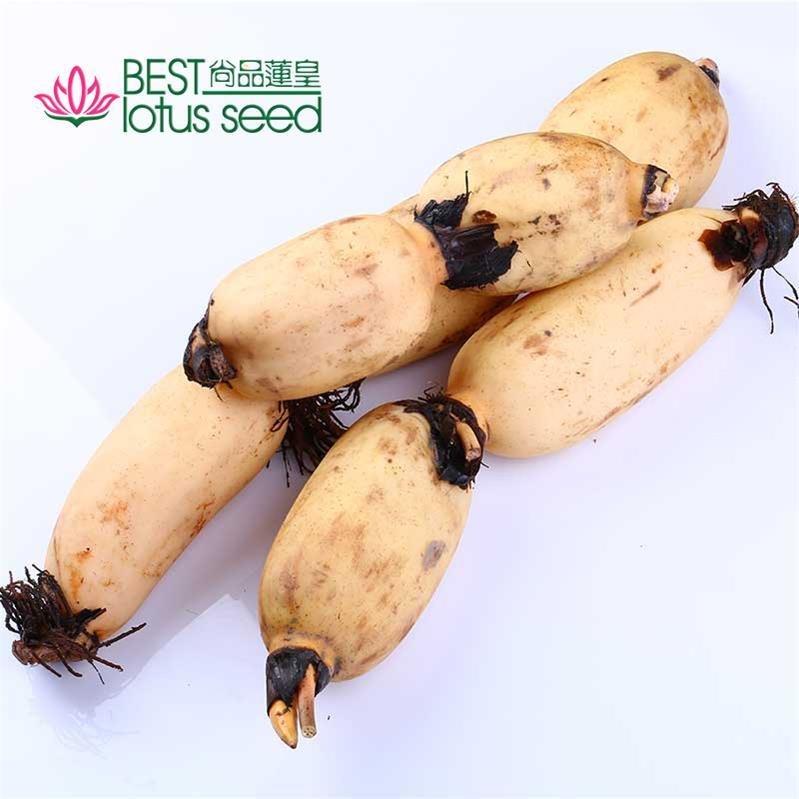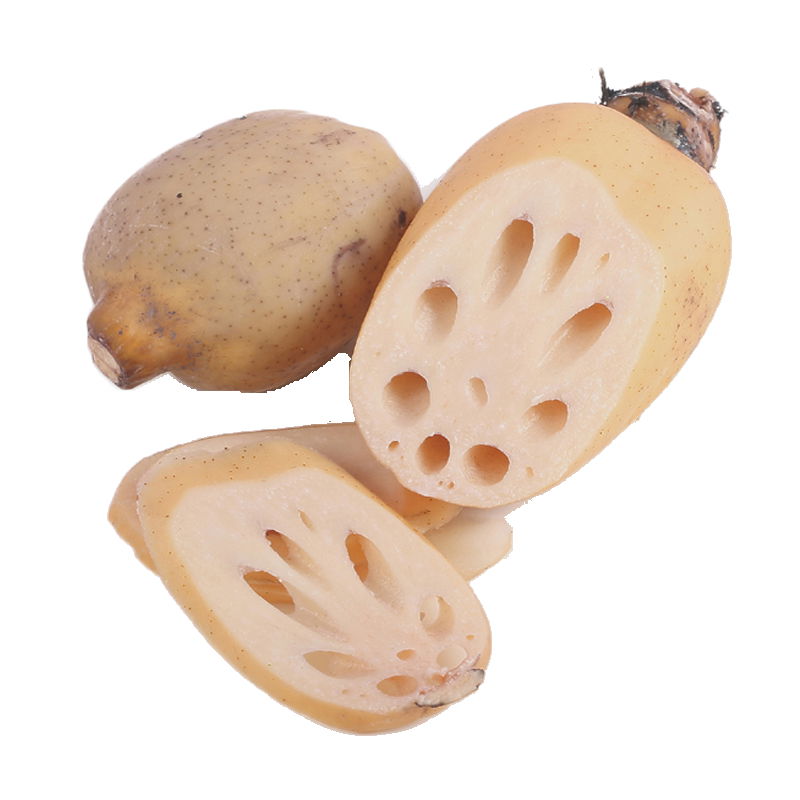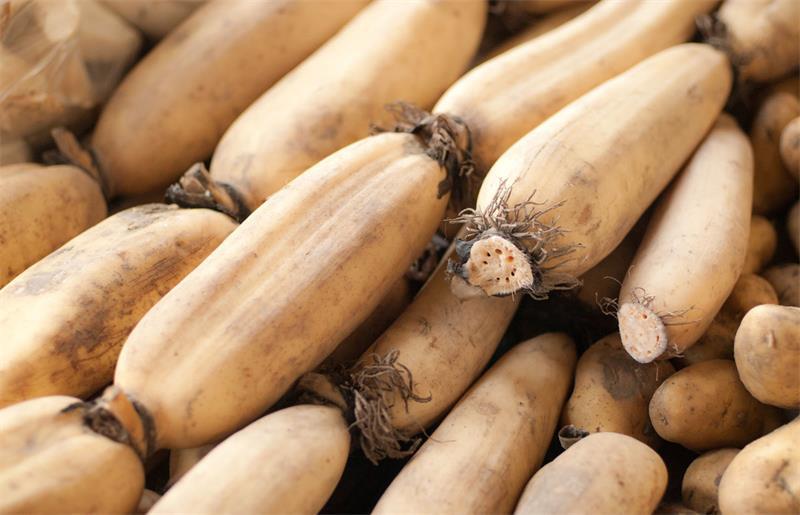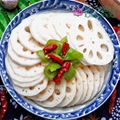Lotus root is a moderate calorie root vegetable and is composed of several vitamins, minerals, and nutrients: including potassium, phosphorous, copper, iron, and manganese, as well as thiamin, pantothenic acid, zinc, vitamin B6, and vitamin C. It is also a very significant source of dietary fiber and a decent source of protein. Contains: 83.80% water, 0.11% fat, 1.56% reducing sugar, 0.41% sucrose, 2.70% crude protein, 9.25% starch, 0.80% fiber, 0.10% ash and 0.06% calcium.
| Product Name |
Lotus Root Vegetable, Lotus rhizome |
| Other Names |
Rhizomes or Tubers |
| Scientific Name |
Nelumbo nucifera |
| originated in |
Hunan, China |
| Food Type |
Moderate calorie root vegetable |
| Whole or in cut pieces |
| Fresh, frozen, or canned |
| Medicinal Uses |
Extensively used in traditional Chinese medicines |
| Treatment of dia rrh ea. |
| Cure stress related problems like insomnia and palpitations |
| Nutrition Facts |
water |
83.80% |
| fat |
0.11% |
| educing sugar |
1.56% |
| sucrose |
0.41% |
| crude protein |
2.70% |
| starch |
9.25% |
| fiber |
0.80% |
| ash |
0.10% |
| calcium |
0.06% |
| Health Benefits |
Improves Blood Circulation |
| Reduces Stress |
| Regulates Blood Pressure |
| Improves Digestion |
| Rich in Vitamin C |
| Rich in Vitamin A |
| Improves Heart Health |
| Manages Weight |
| Helps improve health of skin,hair ad eyes |
| Treating dia bet ic and dia rrh ea |
| Reducing inflammation. |
| Facilitates digestion and regular bowel movements |
| Word of Caution |
There are no inherent risks but some people choose to eat lotus roots raw, which can spread parasites or bacterial infections. Therefore, always cook lotus roots before eating or adding them to your diet. |





